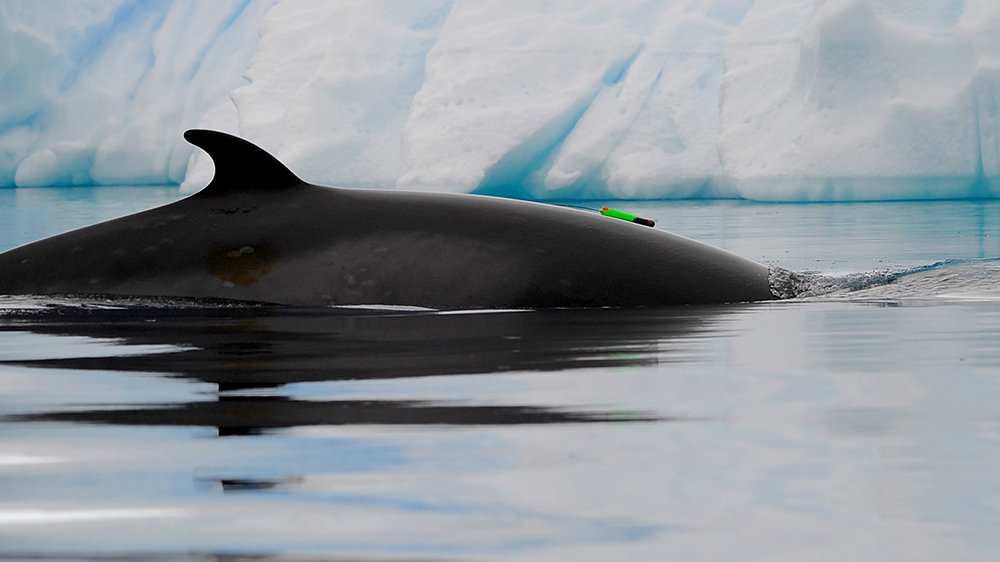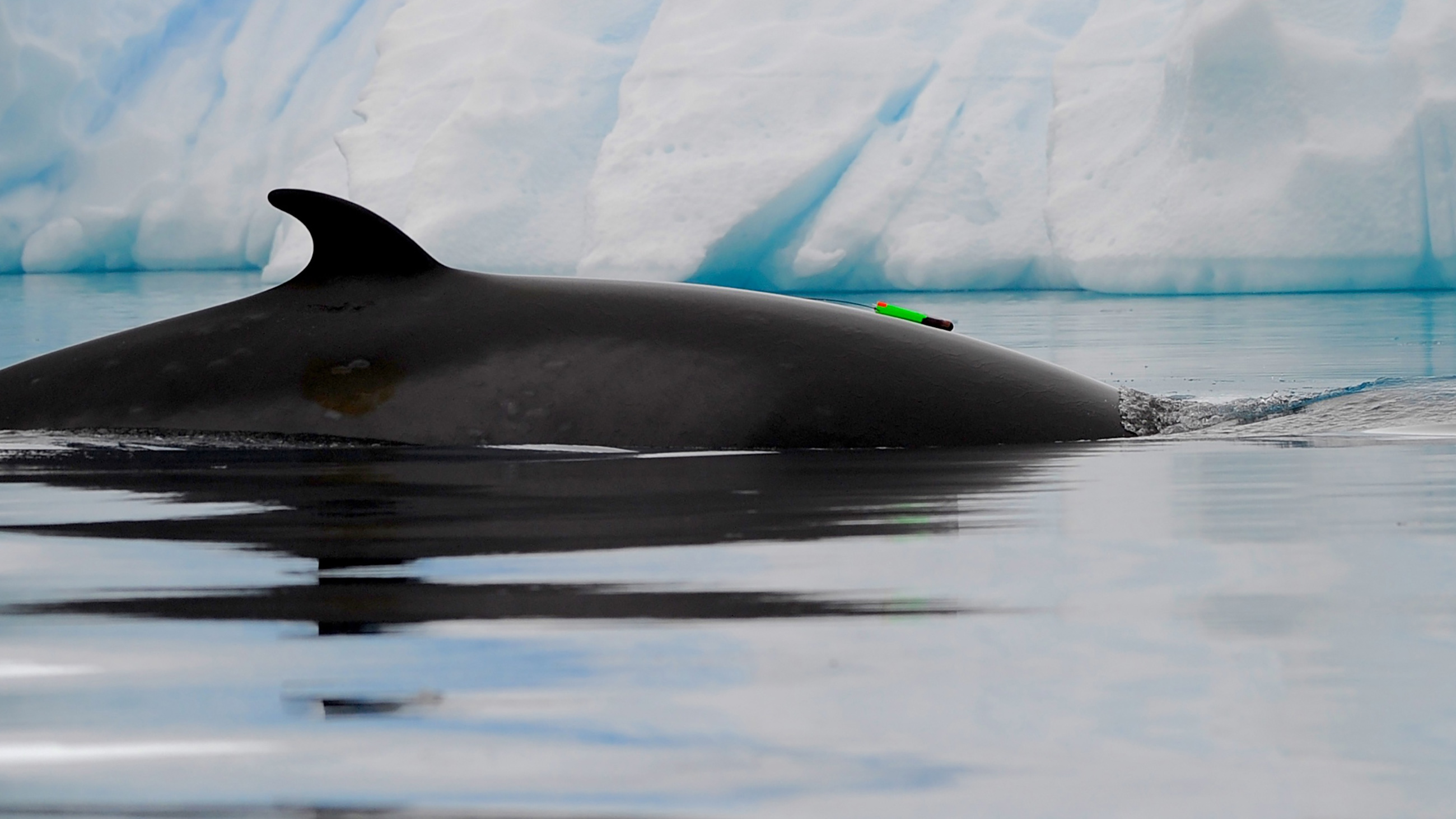Abstracts: Minke Whales, Body Odor, and More
A roundup of science news from around the Web — and around the world.
• The National Oceanic and Atmospheric Administration is weighing whether it ought to spend millions of dollars modernizing its 145-year-old fisheries research center at Woods Hole, MA. (The Boston Globe)
• Under pressure from critics, organizers of the Tribeca Film Festival pulled a controversial anti-vaccination documentary from the festival’s schedule. (Undark Magazine)

Japan slaughtered hundreds of Antarctic minke whales in the name of “science.” Critics aren’t buying it. Visual by Ari Friedlaender/Oregon State University.
• Jeopardy answer: 437. Jeopardy question: What is the minimum set of genes necessary for life, according to a new paper published in the journal Science? (Christian Science Monitor)
• Scientists are scrambling to preserve glacial ice cores — and the rich body of historical atmospheric data they contain — before those records melts away. (The Guardian)
• Citing “scientific purposes” — a claim that conservationists considered dubious — Japan killed hundreds of Antarctic minke whales, many of them pregnant. (National Geographic)
• The history — and science! — of body odor. (The Week)
• Scientists at the University of Massachusetts suspect that a soil bacteria might be useful in fighting the fungal diseases that have been quietly killing the planet’s frogs, bats, and snakes. (Public Radio International)
• Microsoft deployed a chat-bot on Twitter to test its artificial intelligence. Humans immediately turned that chat-bot into a racist, slur-hurling monster. (Vice)
• And finally: Unlocking the history — and scientific mysteries — of Easter Peeps. (Vox)










